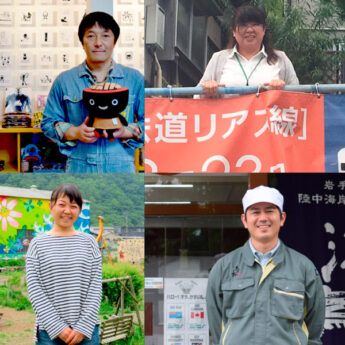The Scottish Government’s Cabinet Secretary for Culture, Europe and External Affairs Fiona Hyslop spoke to some 45 people at a British Chamber of Commerce in Japan breakfast on 30 June, addressing the topics of Scotland’s links with Japan, and its position in the world.
She began by calling attention to the year 2014: “an historic year for Scotland, a year which captured imaginations and shone an international spotlight on our nation”.
This was the year in which Scotland held its referendum on independence from the UK, which Hyslop said was “a remarkable demonstration of democracy at its best”. But it was also a year of events: the Glasgow Commonwealth Games and the Ryder Cup at Gleneagles, as well as the Edinburgh International Culture Summit.
Hyslop said the 84.5% voter turnout for the referendum demonstrated that people “are not indifferent to politics by nature”.
Noting that Japan had voted in the Diet to lower the minimum voting age from 20 to 18 in time for the 2016 upper house election, she said the Scottish Government’s decision to lower the voting age had paid off.
“The numbers spoke for themselves; 90% of 16- and 17-year-olds in Scotland registered to vote in the referendum”, she said.
International engagement
Stressing the Scottish government’s strong commitment to engagement in the international scene, Hyslop said that, in order “to have a good international narrative to tell, you must have the right social and economic conditions at home”.
She went on to spell out Scotland’s key domestic priorities, which focus on creating more and better-paid jobs in a sustainable economy, as well as passing power to people and communities. Scotland’s Economic Strategy, published in March, identifies internationalisation as an integral strand in ensuring that Scotland builds a “fairer and more equal society, at home and abroad”.
Hyslop pointed to four strategic international objectives: “we [intend to] strengthen our external relationships, roles and networks; build our reputation and international attractiveness; boost our trade and investment; and encourage engagement with the European Union [EU].
“The benefits of our EU membership clearly [outweigh] any perceived negatives … engagement with the European Union and its institutions has been, and will remain, a core priority for our government”, she added.
This is hardly surprising, since the EU is a vital export market for Scottish firms. In 2013, for example, exports to the EU accounted for 46% of Scotland’s international exports, worth almost £13bn annually.
Gender equality
On the subject of economic growth, Hyslop said it is clear that women in Scotland make a huge contribution. Yet issues remain.
“We know that many are not able to reach their full potential in the labour market and we are determined to do what we can to address this”, she said.
One point to note is the Scottish government’s policy on childcare. The level of entitlement to free childcare has been extended to a total of 600 hours per year (about 16 hours per week during term time) for three- and four-year-olds as well as two-year-olds under kinship care orders or whose parents receive benefits. In addition, there is a commitment to a further extension, to 30 hours per week, in the next parliament should the government be re-elected.
Another initiative is encouragement of all public, private and third-sector boards to work towards a 50:50 gender balance of their membership.
Trade and investment
In 2013, Scotland’s exports—excluding oil and gas—stood at around £27.9bn. Not surprisingly, much of this can be attributed to produce.
“We export seafood to over 100 countries, and whisky to over 200”, Hyslop said.
Japan, of course, is an important part of that trade landscape. For Scotland, the country ranks 18th as a food and drink export destination. As well as success in food and drink, she added, “we’re also seeing success in areas such as life sciences and renewable energy”.
She acknowledged the role of Scottish Development International, which has a staff of nine in Tokyo, in this success.






